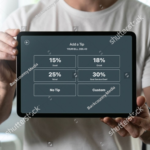Introduction to the Fapdemic
The Fapdemic is more than just a humorous term; it’s a reflection of our times. As technology advances, so do the challenges we face as individuals and society as a whole. The rapid rise of digital content has transformed how we connect, consume information, and even seek pleasure. But with these changes come significant consequences that can affect mental health, relationships, and overall well-being.
This phenomenon touches everyone—from teenagers glued to their screens to adults struggling to maintain balance in their lives. It’s essential to understand what the Fapdemic means for us all and how it shapes our daily experiences. By exploring its roots and implications, we can better navigate this complex landscape together. Let’s dive deeper into what the Fapdemic entails and why addressing it is crucial in today’s world.
The Impact of Technology on Society
Technology has woven itself into the fabric of daily life. From smartphones to smart homes, it shapes how we interact and communicate.
Instant access to information can be a double-edged sword. While knowledge is at our fingertips, distraction lurks around every corner. The allure of notifications often pulls us away from meaningful interactions.
Moreover, technology fosters a sense of community but can also lead to isolation. People connect online yet feel more alone than ever before. The paradox is striking.
Digital platforms have changed relationships fundamentally. Conversations now happen through screens instead of face-to-face exchanges, altering emotional connections and empathy levels.
As society adapts, understanding these shifts becomes crucial in navigating modern challenges like the fapdemic—a phenomenon that highlights both dependency and disconnection brought on by our tech-driven lives.
The Rise of Social Media and Its Effects on Mental Health
Social media has transformed the way we communicate and connect. With just a few taps, we share our lives with friends and strangers alike. This immediacy can be empowering but also overwhelming.
The constant comparison to curated online personas can lead to feelings of inadequacy. Users often find themselves questioning their own worth as they scroll through polished images and highlight reels.
Moreover, social validation through likes and comments creates an addictive cycle. The pursuit of approval can overshadow real-life interactions, leading to loneliness in a crowd.
Cyberbullying is another dark side of this digital age. Negative comments or harassment can significantly impact mental well-being, intensifying anxiety and depression among users.
Amid these challenges, it’s crucial for individuals to recognize how social media affects their emotional health. Awareness is the first step toward finding balance in a world driven by screens.
How the Fapdemic is Affecting Individuals and Relationships
The Fapdemic is reshaping how individuals connect with themselves and others. Many find themselves prioritizing screen time over meaningful interactions. This shift often leads to feelings of isolation.
Relationships suffer when partners become emotionally distant. Instead of engaging in conversation, many retreat into their devices. This behavior creates a barrier that can be hard to break.
Furthermore, the constant barrage of curated images on social media fosters unrealistic expectations. People may begin comparing their lives to what they see online, leading to dissatisfaction and low self-esteem.
For many, this cycle becomes a trap—an escape that only deepens loneliness instead of providing solace. Individuals are losing touch with genuine connections while seeking validation through likes or views.
As personal relationships dwindle, so does emotional intimacy, leaving many yearning for authentic connection but unable to foster it amidst the noise of digital distractions.
The Role of Self-Control and Discipline in Overcoming the Fapdemic
Self-control is a powerful tool in the fight against the fapdemic. It allows individuals to take charge of their impulses and make conscious decisions about their habits. Embracing discipline can lead to healthier patterns of behavior, steering one away from endless scrolling or mindless consumption.
Establishing routines plays a crucial role here. When people set specific times for activities, they create structured environments that foster focus. This reduces the temptation to dive into distractions.
Moreover, mindfulness techniques can enhance self-awareness. By recognizing triggers, individuals gain insight into what drives them toward excessive screen time or other unhealthy behaviors.
Setting clear goals also helps maintain motivation on this journey. Small achievements provide a sense of accomplishment and reinforce positive changes over time.
Cultivating self-control and discipline requires practice and patience but paves the way for lasting transformation in dealing with the fapdemic.
Steps to Take in Reducing Screen Time and Breaking Free from the Fapdemic
Start by setting clear boundaries. Designate specific times for screen usage and stick to those limits. This helps create a structure that can be very effective.
Next, engage in offline activities that capture your interest. Hobbies like reading, gardening, or exercising can fill the void left by reduced screen time.
Consider using apps designed to track and limit your technology use. Awareness is key when battling the fapdemic; knowing how much time you spend online can spur change.
Another useful tip is to establish tech-free zones in your home. Create spaces where devices are not allowed—like the dining room or bedroom—to promote healthier habits.
Find social support from friends or family who share similar goals. Engaging with others on this journey fosters accountability while making it easier to stay committed to reducing screen time.
Conclusion
Understanding the Fapdemic sheds light on a pressing issue that many face today. It’s evident that technology and constant connectivity can lead to unhealthy habits, impacting individual lives and relationships deeply. The rise of social media only exacerbates these challenges, often leaving people feeling isolated rather than connected.
Self-control plays a crucial role in navigating this landscape. Developing discipline is essential in breaking free from the fapdemic’s hold. By taking conscious steps to reduce screen time, individuals can reclaim their lives and enhance their mental health.
As society adapts to these ongoing changes, awareness will be key. Addressing the fapdemic requires collective effort and personal commitment—together we can foster healthier environments for connection and well-being.


